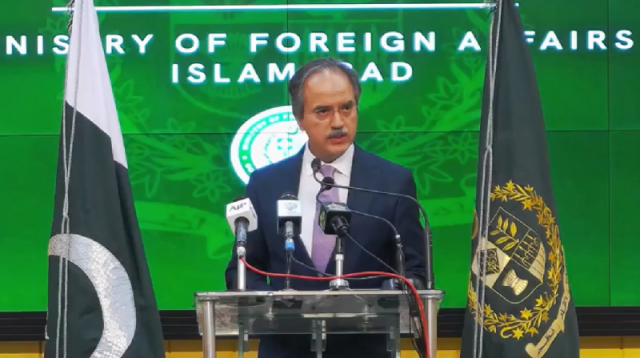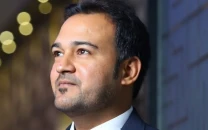‘National interests’ to dictate Taliban policy
FO spokesperson says Pakistan will make independent decision, doesn’t take pressure

Pakistan will make an independent decision on recognising the Afghan Taliban government in line with its national interests, the Foreign Office said on Thursday.
This is seen as a major policy statement in which the government has rejected Washington’s request of Islamabad not giving legitimacy to the Taliban rule unless they met international demands.
“There is no pressure, and we do not take any pressure. We will take independent decisions in line with our interests,” FO spokesperson Asim Iftikhar Ahmad told a reporter when asked about whether or not Pakistan was under US pressure not to recognise the Taliban government.
Testifying before the Congress, Secretary of State Antony Blinken had urged Pakistan to deny legitimacy to the Afghan Taliban unless they met international demands.
“Pakistan needs to line up with a broad majority of the international community in working toward those ends and in upholding those expectations,” Blinken had said during the testimony.
However, the Foreign Office spokesperson’s statement seems to have rejected the request.
Pakistan has been urging the international community to adopt a pragmatic approach, saying the Afghan Taliban were the “new reality” and hence it was time to work with them.
Ahmad said Pakistan was surprised by the comments made by US lawmakers and Secretary Blinken about its role in Afghanistan, insisting the remarks were not in line with the close cooperation between Islamabad and Washington.
Asked by US lawmakers if it was time for Washington to reassess its relationship with Pakistan, Blinken had said the administration would soon be doing that.
Read Pakistan calls for 'positive engagement’ with Afghanistan via ‘practical steps’
“This is one of the things we're going to be looking at in the days, and weeks ahead - the role that Pakistan has played over the last 20 years but also the role we would want to see it play in the coming years and what it will take for it to do that," the secretary had said while testifying before the US Congress on Afghanistan.
Blinken had also endorsed the comments by certain American lawmakers, who questioned the role of Pakistan. "It is one that is involved hedging its bets constantly about the future of Afghanistan, it's one that's involved harbouring members of the Taliban ... It is one that's also involved in different points cooperation with us on counterterrorism," Blinken had said referring to Pakistan’s role in Afghanistan.
But the Foreign Office spokesperson rejected the characterisation of Pakistan's role.
“We have noted that the comments were not in line with the close cooperation between Pakistan and the US,” the spokesperson told the media.
“That was surprising as Pakistan’s positive role in the Afghan peace process, the recent facilitation of the multinational evacuation effort from Afghanistan and continued support for an inclusive political settlement there have been duly acknowledged, including most recently by the US State Department spokesperson in his briefing on September 15 [Thursday],” he added.
US State Department spokesperson Ned Price said: “We have been in regular touch with our Pakistani counterparts as well as its leadership. We’ve discussed Afghanistan in some detail.”
Responding to the criticism, the FO spokesperson listed a number of actions Pakistan undertook to help the US in the fight against terrorism.
Read more UN envoy meets new Afghan interior minister wanted by US
“Pakistan had played a critical role in helping the US degrade al-Qaeda’s core leadership in Afghanistan -- the international coalition’s core objective. At the same time, Pakistan had always maintained that there was no military solution to the larger Afghan conflict and that a political settlement offered the only plausible pathway to sustainable peace in Afghanistan – a position now shared by the US,” Ahmad pointed out.
On Afghanistan, the spokesperson said achieving an inclusive political settlement in Afghanistan that represented its diversity and reflected the gains made by the country remains a shared objective for Pakistan and the US.
“We look forward to building on this convergence while also strengthening other aspects of a broad-based and constructive relationship,” he added.
Observers believe that the US may disengage with Pakistan despite earlier promises that it would not abandon the country once its job was done in Afghanistan.
The lack of US interest in resetting ties with Pakistan can be judged from the fact that President Joe Biden has not yet telephoned Prime Minister Imran Khan.
In an interview, PM Imran had said Biden “might be a busy man” and hence he had not yet reached out to him.
However, the lack of contact at the civil leadership level is indicative of the US administration's future policy towards Pakistan.



















COMMENTS
Comments are moderated and generally will be posted if they are on-topic and not abusive.
For more information, please see our Comments FAQ